Plastic Free July is a change-making, global movement, inspiring us all to take action to clean up our vulnerable planet and reduce our plastic use. While it may seem like an overwhelming issue, individual action leads to collective change, with over 100 million participants in 190 countries taking part, creating a worldwide community driven to refuse single-use plastic.
Devastating images of turtles entangled in plastic, the soft bellies of fish and seabirds filled to the brim with plastic, and the sea overflowing with cartons, containers and carrier bags may be scourged in our memories. In 2016 it was predicted that by 2050, there would be more plastic than fish in the sea. Meanwhile, microplastics have been found in every corner of the globe, from the foot of the Mariana Trench to the summit of Mount Everest.

It may have once been easy to remove ourselves from this troubling situation, to ignore and forget, but now that microplastics have been found in our very bodies, from our lungs to our blood to our cells, as well as in the very air we breathe, we can no longer ignore this crisis.
Here are 6 conservation books to bolster your awareness and knowledge of the crisis, as well as inspiring you to make simple changes in your life can have a big impact:
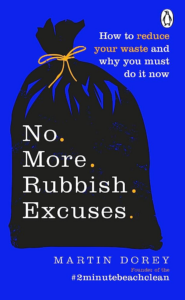 No More Rubbish Excuses: How to reduce your waste and why you must do it now, Martin Dorey
No More Rubbish Excuses: How to reduce your waste and why you must do it now, Martin Dorey
Litter on our streets, plastics in our seas, overflowing landfill, fatbergs… Do you know where your rubbish ends up? We are all responsible for the waste we make and we can make simple changes to live more planet-friendly lives.
Expert environmental campaigner Martin Dorey looks at what we recycle, what we bin, what we take to the tip – plastics, food, clothing, electricals and furniture – where it goes and what it really does to our planet. Martin offers simple, impactful ways – #2minutesolutions – to cut down your waste and why they make a big difference. You can help save the planet. It only takes 2 minutes.
Turning the Tide on Plastic, Lucy Siegle 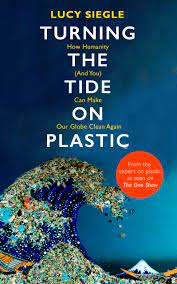
Enough plastic is thrown away every year to circle the world 4 times; more than 8 million tonnes of plastic enter the oceans each year; 300 million tonnes of new plastic is produced every year; an estimated 15-51 trillion pieces of plastic now litter the world’s ocean; 38.5 million plastic bottles are used every day in the UK; a million plastic bottles are used per minute around the world; 500 million plastic straws are used per year.
Turning the tide on Plastic is here just in time. Journalist, broadcaster and eco lifestyle expert Lucy Siegle provides a powerful call to arms to end the plastic pandemic along with the tools we need to make decisive change. It is a clear-eyed, authoritative and accessible guide to help us to take decisive and effective personal action.
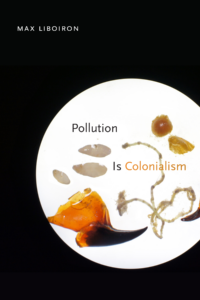 Pollution is Collonialism, Max Liboiron
Pollution is Collonialism, Max Liboiron
In Pollution Is Colonialism Max Liboiron presents a framework for understanding scientific research methods as practices that can align with or against colonialism. They point out that even when researchers are working toward benevolent goals, environmental science and activism are often premised on a colonial worldview and access to land. Focusing on plastic pollution, the book models an anticolonial scientific practice aligned with Indigenous, particularly Metis, concepts of land, ethics, and relations.
Plastic Soup: An Atlas of Ocean Pollution, Michiel Roscam Abbing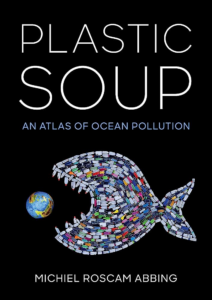
Plastics have transformed every aspect of our lives. Yet the very properties that make them attractive – they are cheap to make, light, and durable – spell disaster when trash makes its way into the environment. Plastic Soup: An Atlas of Ocean Pollution is a beautifully-illustrated survey of the plastics clogging our seas, their impacts on wildlife and people around the world, and inspirational initiatives designed to tackle the problem.
Plastic Soup highlights a diverse array of projects to curb plastic waste and raise awareness, from plastic-free grocery stores to innovative laws and art installations. Created to inform and inspire readers, Plastic Soup is a critical tool in the fight to reverse this trend.
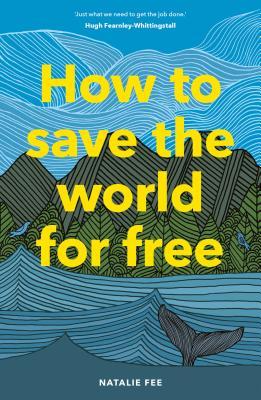 How to Save the World for Free, Natalie Fee
How to Save the World for Free, Natalie Fee
There is no greater aspiration than saving the world. Natalie Fee’s upbeat and engaging book is a life-altering guide to making those changes that will contribute to helping our planet. Covering all key areas of our lives, from food and leisure to travel and sex, Natalie will galvanise you to think and live differently. You will feel better, live better and ultimately breathe better in the knowledge that every small change contributes towards saving our world.
How to Give Up Plastic, Will McCallum 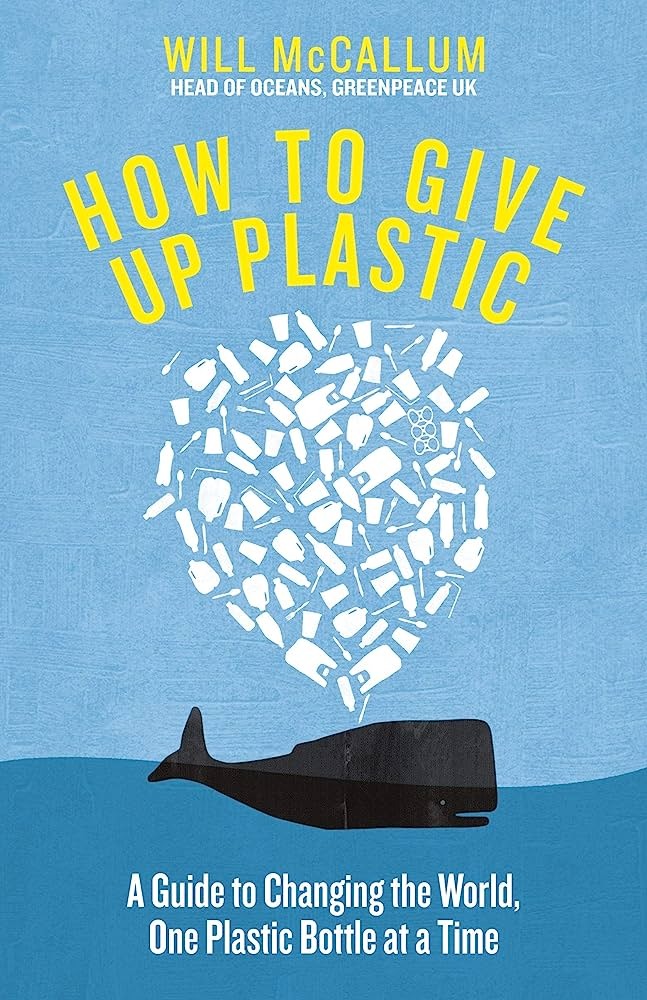
Around 12.7 million tonnes of plastic are entering the ocean every year, killing over 1 million seabirds and 100,000 marine mammals. By 2050 there could be more plastic in the ocean than fish by weight.
But how can YOU make a difference? This accessible guide will help you make the small changes that make a big difference, including: using a wash bag to catch plastic microfibers; replacing your regular shampoo with bar shampoo; how to throw a plastic-free birthday party. Plastic is not going away without a fight. This is a call to arms – to join forces across the world and end our dependence on plastic.
If you’d like more reading inspiration on conservation, you can check out longlist here. Head to the @wainwrightprize Instagram to stay up to date.
Privacy Policy | Terms & Conditions | Website by Milk & Tweed
| Cookie | Duration | Description |
|---|---|---|
| cookielawinfo-checkbox-analytics | 11 months | This cookie is set by GDPR Cookie Consent plugin. The cookie is used to store the user consent for the cookies in the category "Analytics". |
| cookielawinfo-checkbox-functional | 11 months | The cookie is set by GDPR cookie consent to record the user consent for the cookies in the category "Functional". |
| cookielawinfo-checkbox-necessary | 11 months | This cookie is set by GDPR Cookie Consent plugin. The cookies is used to store the user consent for the cookies in the category "Necessary". |
| cookielawinfo-checkbox-others | 11 months | This cookie is set by GDPR Cookie Consent plugin. The cookie is used to store the user consent for the cookies in the category "Other. |
| cookielawinfo-checkbox-performance | 11 months | This cookie is set by GDPR Cookie Consent plugin. The cookie is used to store the user consent for the cookies in the category "Performance". |
| viewed_cookie_policy | 11 months | The cookie is set by the GDPR Cookie Consent plugin and is used to store whether or not user has consented to the use of cookies. It does not store any personal data. |